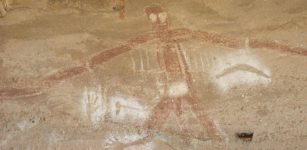On This Day In History: Emperor Constantine I Passes His Famous National Sunday Law – On March 7, 321 AD
AncientPages.com - On March 7, 321 AD., Emperor Constantine (ruled 306 – 337 AD) passed his famous national Sunday law.
It was 'dies Solis'—the day of the sun, "Sunday"—as the Roman day of rest.
Modern bronze statue of Constantine I in York, England, near the spot where he was proclaimed Augustus in 306. Image uploader: Chabe01 - CC BY-SA 4.0
In 312 AD, before his crucial victory over his rival Maxentius at the Battle of Milvian Bridge, Constantine became a "Christian" after claiming to see in broad daylight a vision of "a cross above the sun" with these words proclaimed, "in hoc signo vinces" (by this sign conquer").
After defeating his enemies, he became Emperor of Rome and presided over the "First Council of Nicea" in 325 AD.
Constantine was determined to unite Christianity and paganism to strengthen his collapsing empire. Constantine knew that pagans throughout the empire worshiped the sun on "the first day of the week," He discovered that many Christians, especially in Rome and Alexandria, also kept Sunday because Christ rose from the dead on that day. So Constantine developed a plan to unite both groups on the common platform of Sunday keeping.
On the venerable Day of the Sun (Sunday), let the magistrates and people residing in cities rest and close all workshops. In the country, however, persons engaged in agriculture may freely and lawfully continue their pursuits; because it often happens that another day is not so suitable for grain sowing or vine-planting...'
Constantine even printed coins that bore on one side the letters of the name of Christ. On the other was the figure of the sun god.
His promotion of Sunday observance was part of his solid strategy to combine paganism with Christianity.
AncientPages.com





















